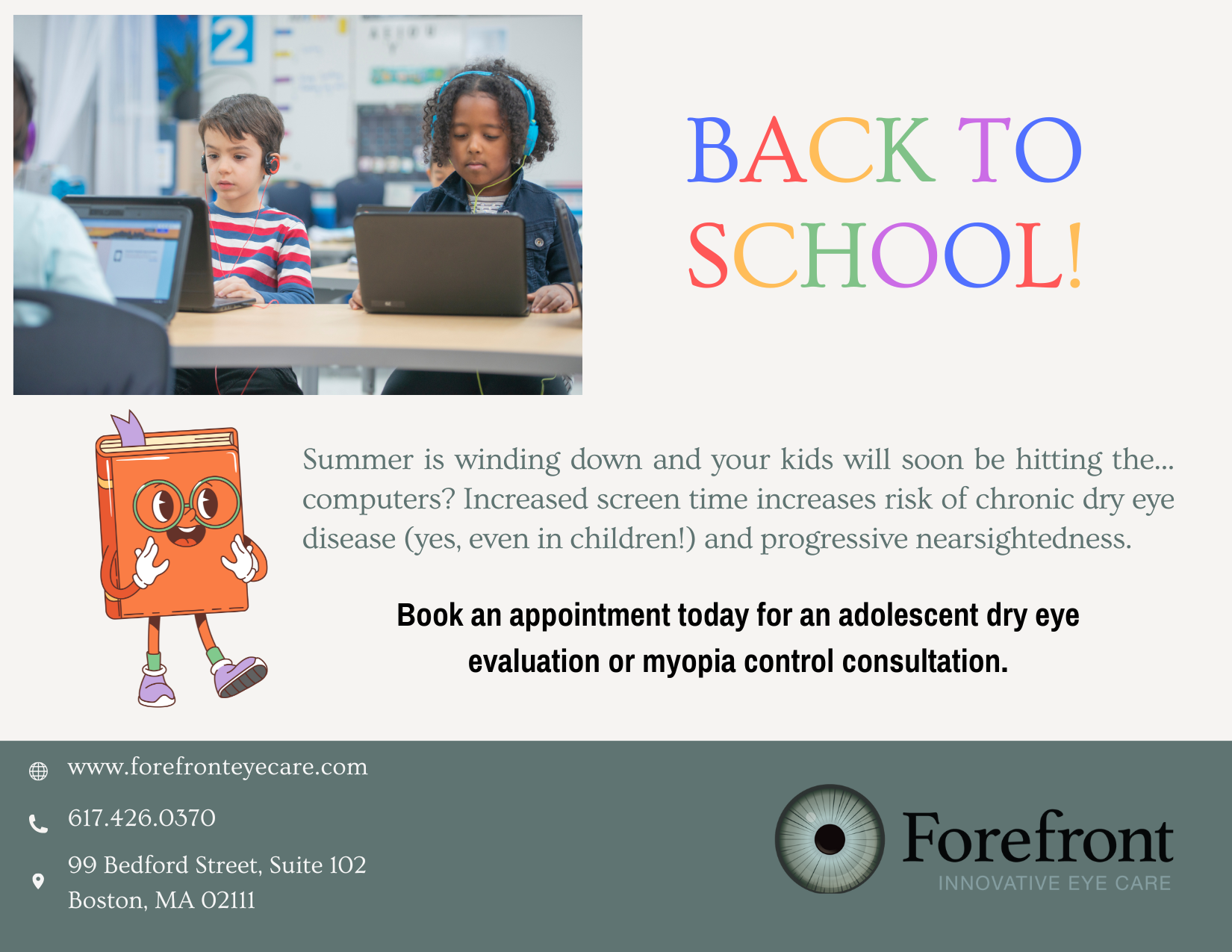
Living in Boston means experiencing all four seasons, from icy winter winds to hot and humid summers. While the city’s climate brings variety, it can also create challenges for those with dry eye syndrome. If you’ve noticed burning, stinging, or irritation in your eyes, changing weather and urban environmental conditions might be making your symptoms worse.
What Is Dry Eye?
Dry eye syndrome is a common condition that occurs when your eyes don’t produce enough tears or when the tears evaporate too quickly. This can lead to symptoms such as stinging, burning, redness, blurred vision, or a gritty sensation in the eyes. While dry eye can be caused by underlying medical conditions or certain medications, your environment also plays a major role in the severity of your symptoms.
Common Environmental Triggers for Dry Eye
Dry or Windy Climates: Areas with low humidity or high winds can cause tears to evaporate more quickly, leaving your eyes dry and irritated.
Air Conditioning and Heating: Indoor air systems, especially during summer and winter months, can significantly reduce humidity levels. Prolonged exposure to forced air can dry out your eyes rapidly.
Digital Screens: When you stare at screens such as computers, tablets, or smartphones, you blink less frequently. Reduced blinking contributes to tear evaporation and can make dry eye symptoms worse.
Smoke and Pollution: Whether it’s cigarette smoke, car exhaust, or industrial pollution, airborne irritants can increase inflammation on the surface of the eyes.
High Altitudes: Spending time in mountainous or elevated environments can expose your eyes to lower humidity and UV radiation, both of which contribute to dryness.
Allergens and Dust: Environmental allergens, including pollen, pet dander, and dust, can lead to increased eye irritation and worsen existing dry eye symptoms.
What You Can Do to Reduce Environmental Dry Eye Triggers
Use a humidifier indoors to add moisture to the air, especially when using heat or AC.
Wear wraparound sunglasses or protective eyewear outside to shield your eyes from wind and sun.
Take regular screen breaks to encourage more frequent blinking.
Avoid exposure to smoke and use air purifiers to reduce indoor pollutants and allergens.
Stay hydrated and maintain a balanced diet rich in omega-3 fatty acids to support tear production.
When to See an Eye Doctor
If you've tried adjusting your environment but continue to struggle with dry eye symptoms, it may be time to seek professional care. At Forefront Eye Care, we offer advanced diagnostics and personalized treatment options designed to provide lasting relief.
Depending on your specific needs, we may recommend custom moisture chamber spectacles to reduce tear evaporation, TearCare® to address meibomian gland dysfunction, Intense Pulsed Light (IPL) therapy to reduce inflammation, scleral lenses to protect and hydrate the eye surface, or LipiFlow® thermal pulsation treatment to improve gland health. We also offer many other tailored solutions to help manage your symptoms effectively and improve your overall eye comfort.
Take Control of Your Dry Eye Symptoms Today
Environmental factors can have a significant impact on your dry eye symptoms, but you don’t have to manage them alone. With the right care, relief is possible. We combine advanced diagnostics with customized treatment plans to address the root cause of your discomfort and improve your quality of life.
If dry eyes are interfering with your daily routine, schedule a comprehensive dry eye evaluation with Forefront Eye Care to find the right treatment for your needs. Visit our office in Boston, Massachusetts, or call (617) 322-0534 to book an appointment today.









